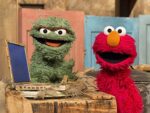If you are a parent, I’m certain you must have sung a few English rhymes to keep your child entertained. I had my fair share too at singing these kids’ rhymes to my son, during his infancy. However, I do now realize that most of these rhymes are unfounded in its very premise in the overall upbringing of the child. The simplest way of conveying a concept or an idea of belief towards something, can be best sowed in the child’s fragile mind through a fable or jingling rhyme. Although, the harmless rhymes that I had known since my childhood, came back to bite me during my parenting years, when I happened to perceive the fundamental underlying principle of these rhymes without focusing on the tenets of rhythmic Topsy-turvy. Let’s look at the top four such rhymes which I let out a cry at, while my son enjoyed them thoroughly.
1. Little Miss Muffet
The rhyme sings of the little girl who is eating her nutritious curd and protein filled whey until the eight legged spider plays spoil sport and frightens the kid.
Little miss Muffet she sat on her tuffet, eating her curds and whey. Along came a spider who sat down beside her, And frightened miss Muffet away
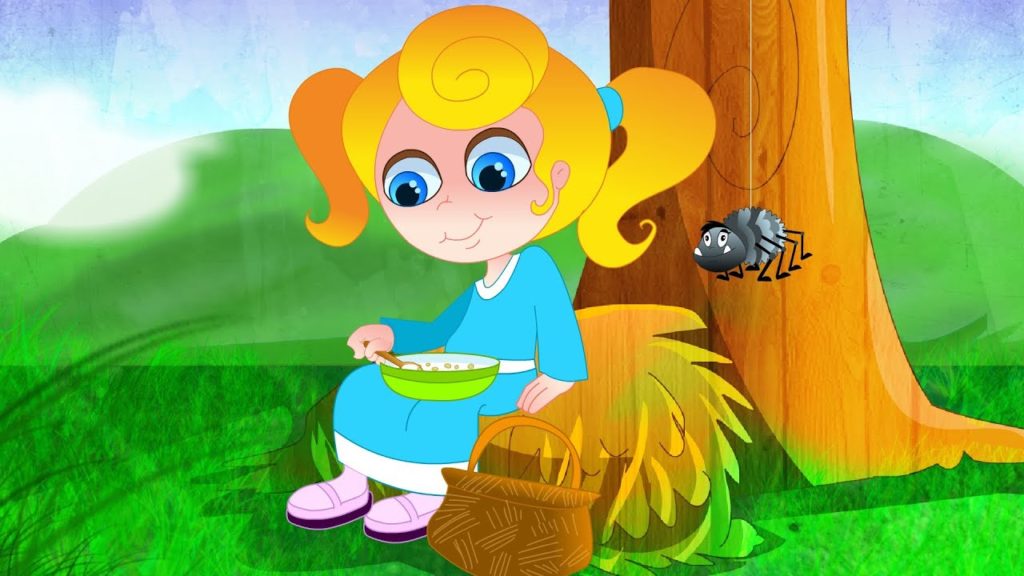
This rhyme introduces the basic perception of fear. The picture of Miss Muffet dropping her bowl and running, after seeing the spider approaching her, sends a message that spiders are to be feared. Kids do not have an inkling of the sense of fear until told and this rhyme, on account of it being repeated numerous times, sets the founding stone of the concept of fear in the child.
2. Humpty Dumpty
This rhyme is indicative of the carelessness of one such Humpty Dumpty, a personified egg, who happens to sit on the wall rather clumsily and encounters a great fall. The rhyme proceeds to state that none of the king’s men or horses were able to put Humpty Dumpty together again. Thus, ending the otherwise emotionally harmless fall into a permanent defeat of sorts.
Humpty Dumpty sat on a wall, Humpty Dumpty had a great fall. All the king’s horses and all the king’s men, couldn’t put Humpty together again.
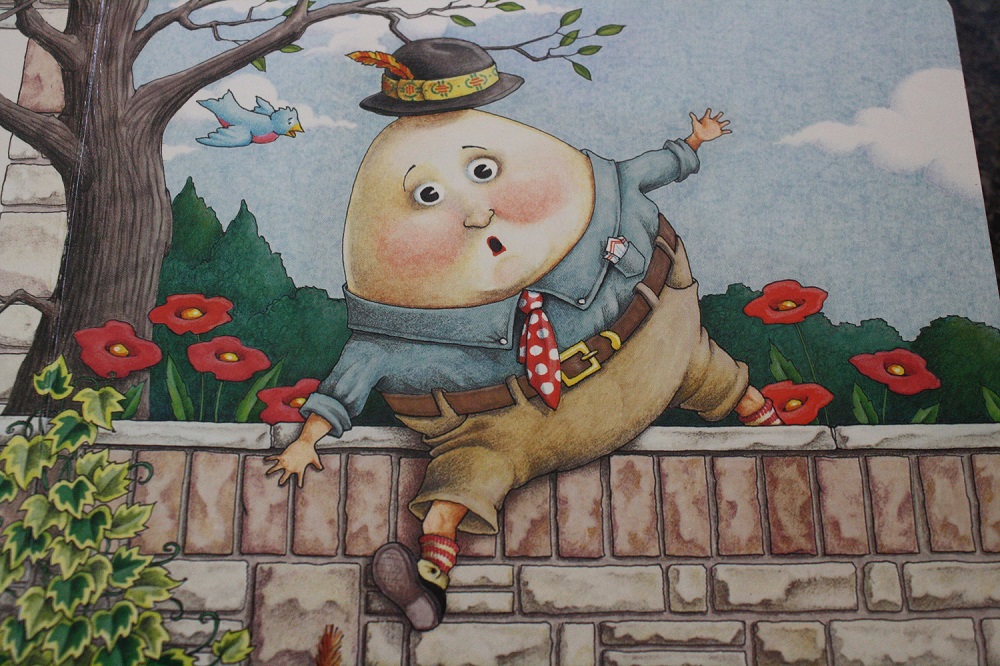
The first time I sang this song to my kid, he was awaiting the next verse with a hope in his eyes that Humpty Dumpty would somehow be miraculously saved. Alas, that wasn’t to be and the light at the end of the tunnel dimmed further. The rhyme could have ended with a smile with the glimmer of hope despite falls and failures.
3. Jack and Jill
This rhyme had the essence of true character building when it begins. Jack and Jill with much effort climb up the hill to fetch water from the well but as an anti-climax Jack falls down the hill and breaks his head and Jill follows him tumbling head over heels downside the hill
Jack and Jill went up the hill To fetch a pail of water. Jack fell down and broke his crown, And Jill came tumbling after.
Up Jack got, and home did trot, As fast as he could caper, He went to bed to mend his head, With vinegar and brown paper.
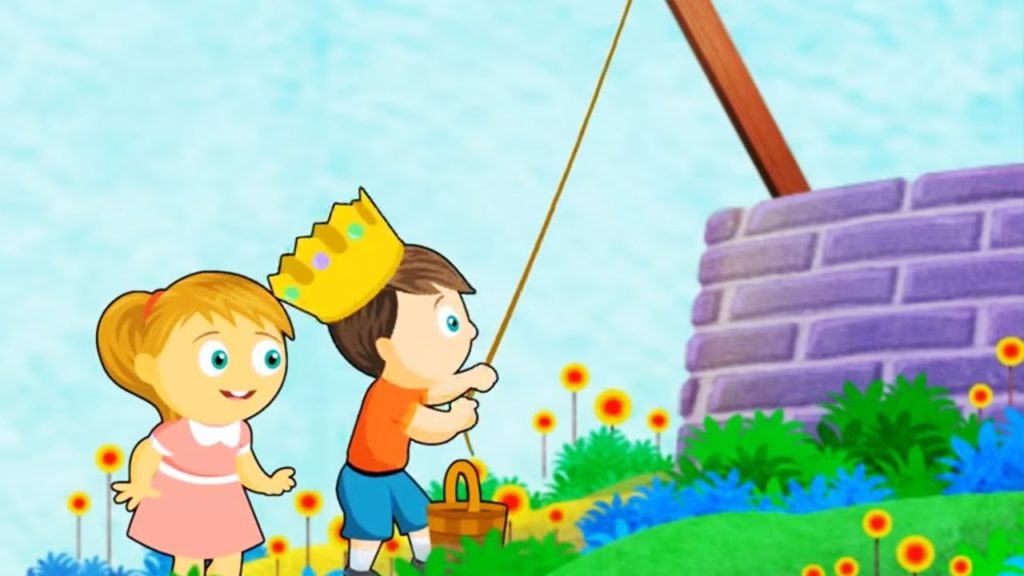
The rhyme could have ended with a much zealous effort and eventually seeing Jack and Jill achieving their goal in fetching the water against the odds of tumble. But it culminates with Jack nursing his head wounds with no sign of poor Jill in sight. This rhyme seems incomplete both in prose and practicality and maintains its difficulty level in explaining the children the moral grounds of the poem.
4. Piggy on the railway line
This rhyme does tickle your funny bone but isn’t funny when you come to think of it as a deliberate attempt to injure the poor pig, whose only misdeed was to pick the pebbles lying on the railway tracks.
Piggy on the Railway picking up stones, Along came an Engine and broke Piggy’s bones. “Oh,” said Piggy, “That’s not fair!” “Oh,” said the Engine driver, “I don’t care!”
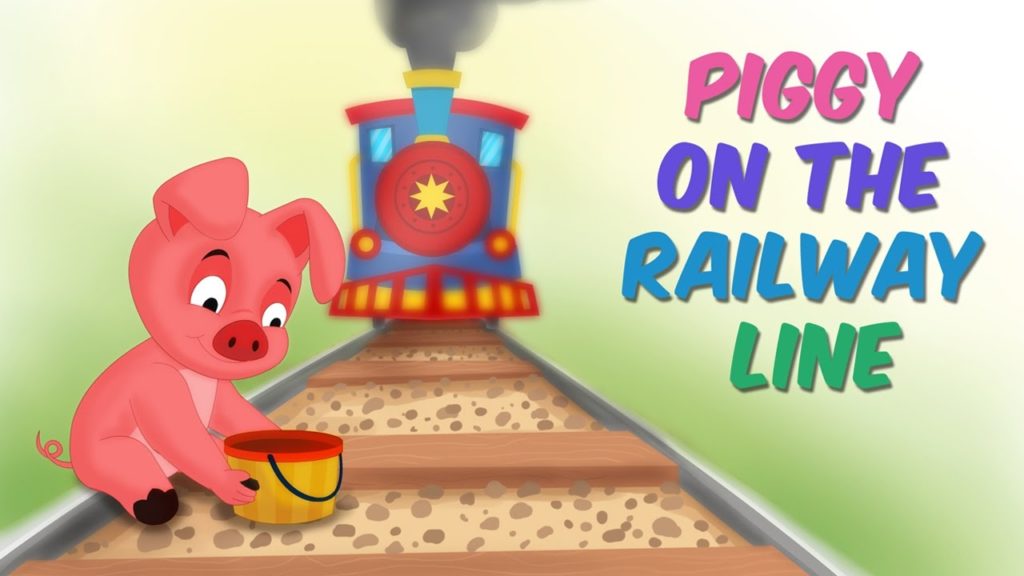
The notoriety of the engine driver is never addressed nor a simple reprimand features in the rhyme as a retribution to the engine driver’s offence. Poor little pig remains with broken bones while the engine driver smiles down the tracks. It seems perilous to leave an exclamatory remark as not being caring, which inculcates an attribute of non-compassion in kids.
Hoping that the above rhymes and the others with similar kind are benefited with an extended version exhibiting the positive side of life with a moral to go with it.
Thanks for reading.




